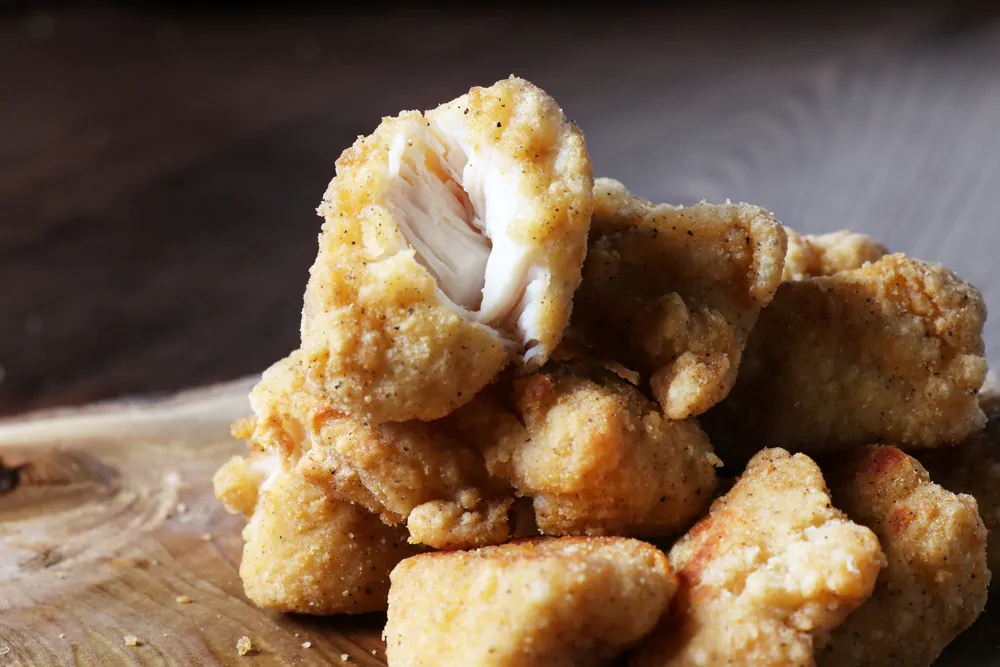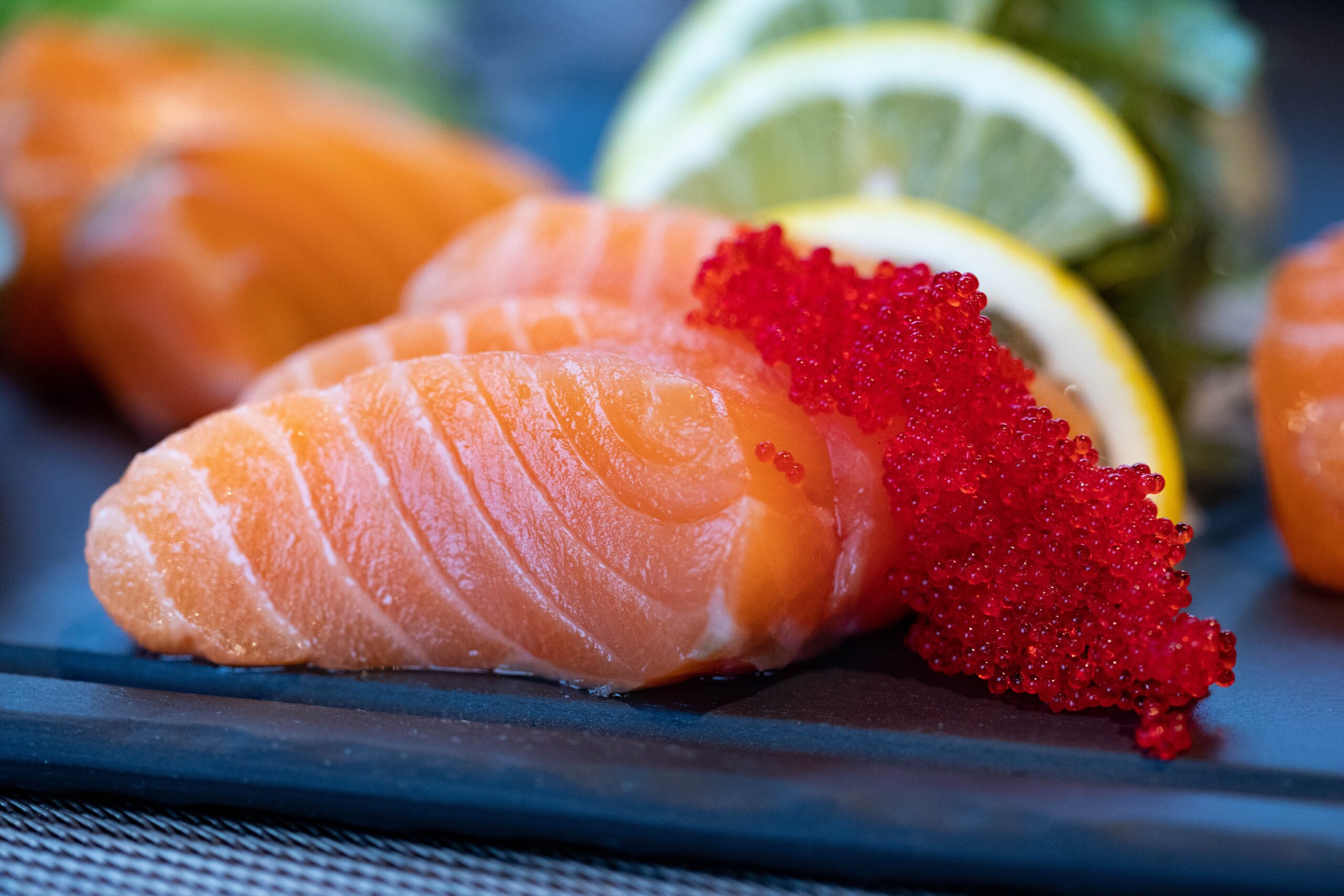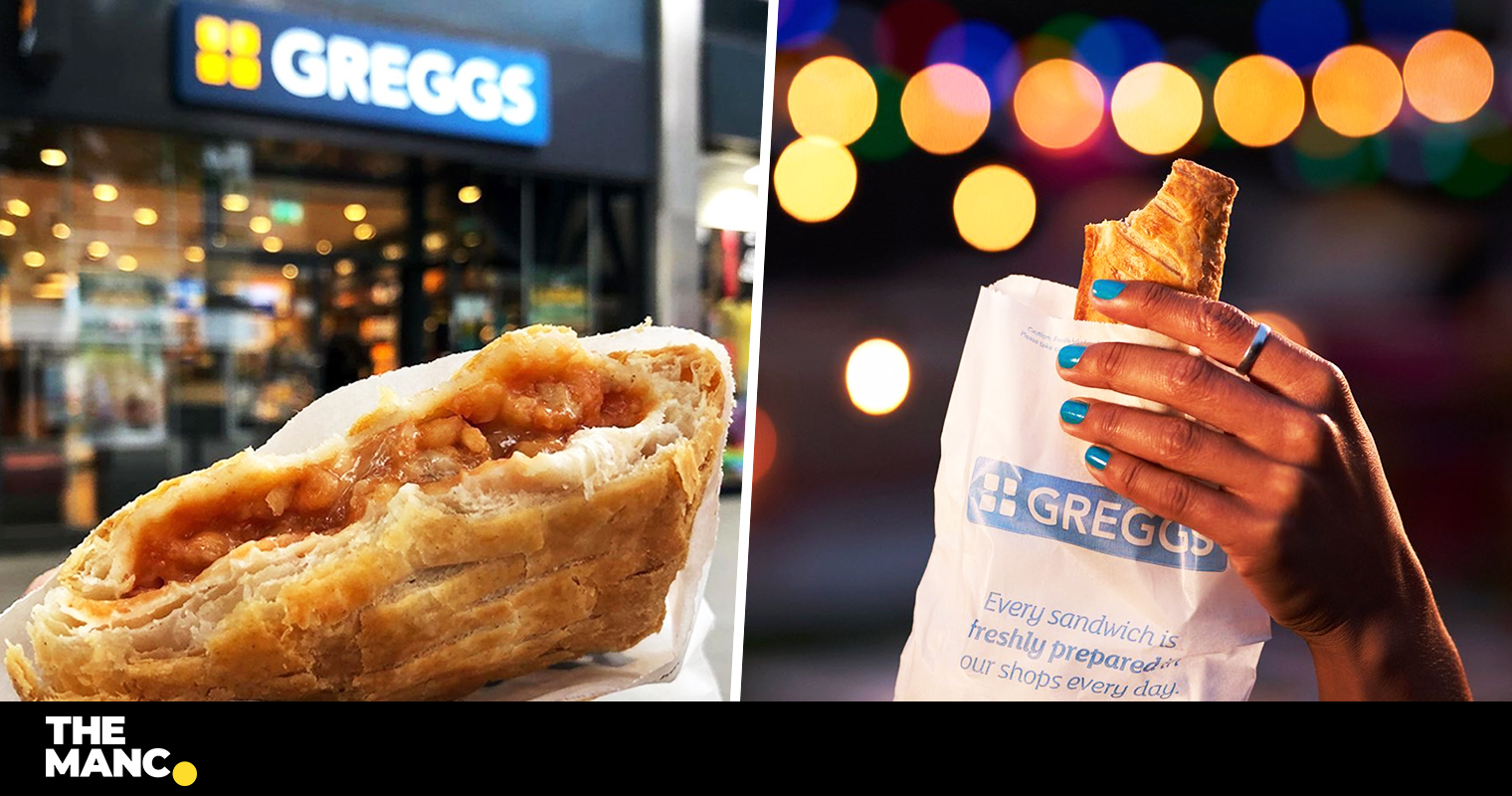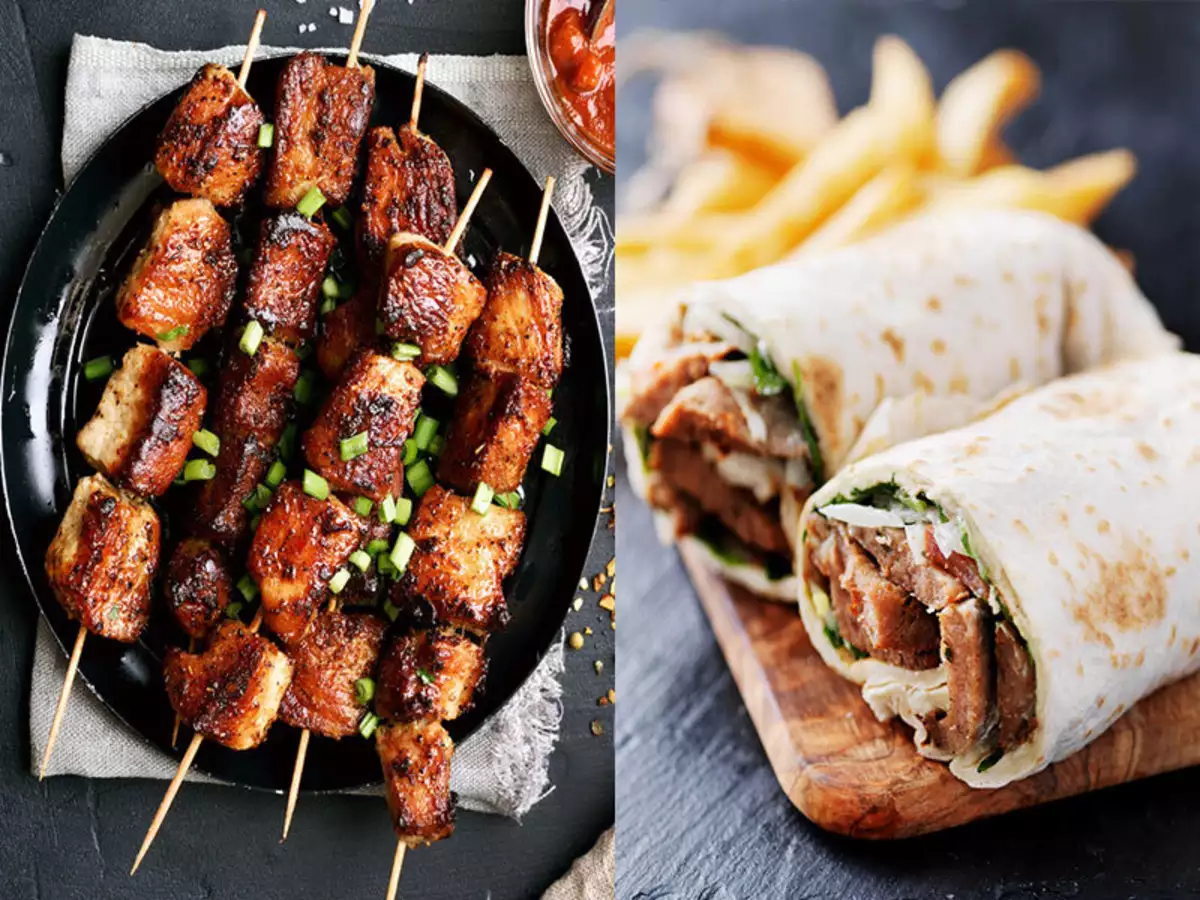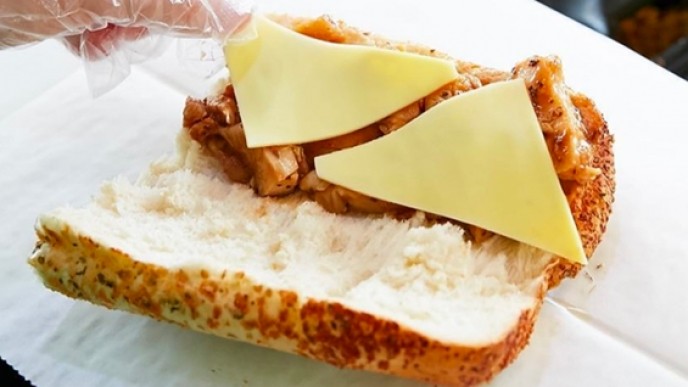Yes, consuming cold chicken nuggets is fine as long as they’ve been appropriately stored in an airtight container or sealed plastic bag within the refrigerator. However, avoid eating chicken nuggets that have been refrigerated for over three days.
In the realm of fast food and finger foods, few items have captured the hearts (and taste buds) of people worldwide quite like chicken nuggets.
These golden-brown morsels of tender chicken, coated in a delectable crunchy exterior, have become an enduring symbol of convenience and comfort. While hot and freshly cooked nuggets are the epitome of satisfaction.
Let’s uncover the sizzling details behind this crispy temptation.
How Long Do Leftover Chicken Nuggets Last?
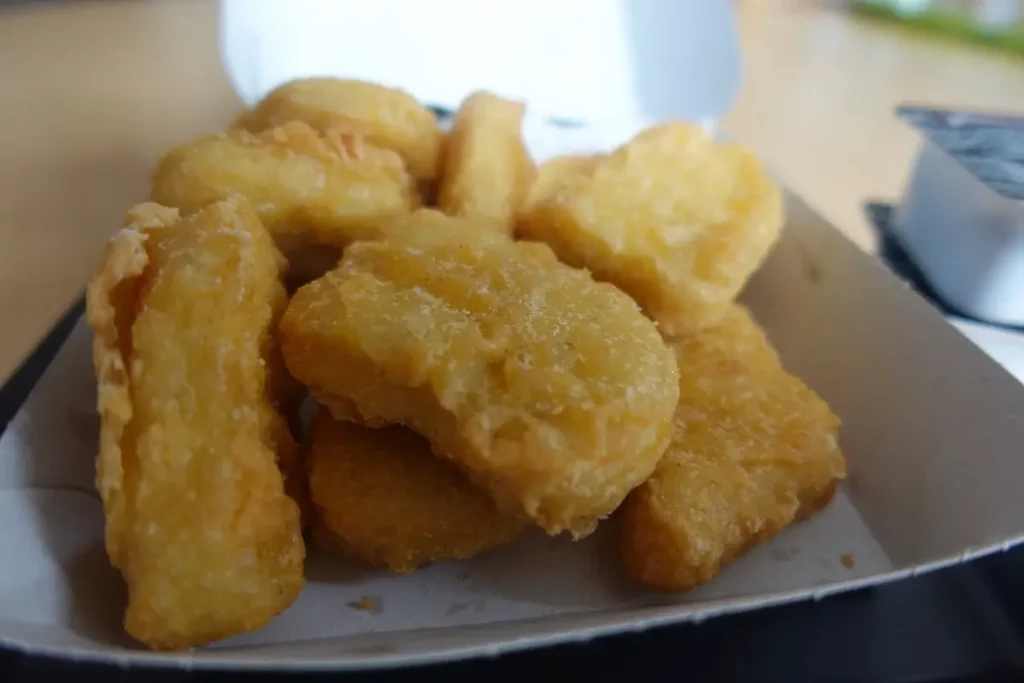
If you have leftover chicken nuggets, they can remain fresh for about three days when stored correctly in the refrigerator. It’s important to place them in either an airtight container or a sealed plastic bag.
However, it’s crucial to avoid letting them remain at room temperature for over two hours. This two-hour window is critical because it’s the duration in which harmful bacteria can multiply in the food.
This temperature range, spanning from 40°F to 140°F, is known as the “danger zone” for meats. Meats that haven’t been cured shouldn’t be exposed to this temperature range for more than two hours.
Furthermore, It’s not advisable to leave your leftover chicken nuggets out overnight, anticipating them to be safe the following day. The nighttime hours exceed the two-hour limit. Presumably, your home maintains a temperature that doesn’t fall below 40°F or exceed 140°F – a necessary condition to ensure food safety.
How are chicken nuggets reheated?
Reheating Chicken Nuggets: You can reheat chicken nuggets, but it’s best to avoid reheating them more than twice due to potential changes in texture and taste. Proper storage and prompt refrigeration after reheating are important.
Reheating Methods:
Oven: Reheating chicken nuggets in the oven preserves their crispy texture. While not the quickest method, it ensures the best quality. Begin by allowing the nuggets to reach room temperature after taking them from the fridge. Preheat the oven to 375°F, place the nuggets on an aluminum foil-covered baking sheet, and bake for around 20 minutes. Keep an eye on them as the time needed varies based on quantity and size.
Microwave: The microwave is the fastest way to reheat chicken nuggets, although it may affect their texture. When in a rush, this method is preferable to eating them cold. Spread the nuggets on a plate (preferably in a single layer) and microwave for 1-2 minutes, checking every 30 seconds to prevent them from drying out.
Frying Pan: Reheating in a frying pan is quicker than using the oven but requires more effort. Heat the chicken nuggets in a pan with a bit of oil. This method maintains their crispiness and is faster than oven reheating. Add a touch of oil to the pan, place the nuggets in, and cook for 1-2 minutes on each side until they’re golden brown.
Air Fryer: The air fryer offers a fast way to reheat chicken nuggets while preserving their crispness. Keep in mind that small batches are needed due to the air fryer’s size. Simply place the nuggets in the air fryer with a bit of oil to prevent sticking and heat them for 5 minutes at 350°F.
By using these methods, you can conveniently reheat chicken nuggets to maintain their quality and taste
How to check if chicken nuggets are bad?
Before deciding to consume cold chicken nuggets, it’s crucial to determine if they are still safe to eat. While checking the expiration date is a straightforward method for packaged ones, it doesn’t guarantee safe storage after reheating. Here are key factors to consider when deciding whether to eat chicken nuggets, whether cold or reheated:
- Smell: Thawed chicken nuggets that have gone bad emit a foul odor. Be vigilant when checking their smell, particularly after thawing, as frozen nuggets might not reveal spoilage until thawed completely.
- Color: Any noticeable color change in the nuggets indicates potential spoilage. Pay special attention to changes in the meat’s color, as the outer appearance might not change significantly.
- Texture: While reheating techniques can impact texture, properly stored chicken nuggets should remain relatively firm. Avoid consuming nuggets that feel mushy or overly soft.
- Taste: Taste serves as a final indicator of spoilage. If the chicken nuggets have an off-putting sour or bitter taste, it’s a clear signal that they have gone bad.
What Possible Potential Health Risks of Consuming Cold Chicken Nuggets?
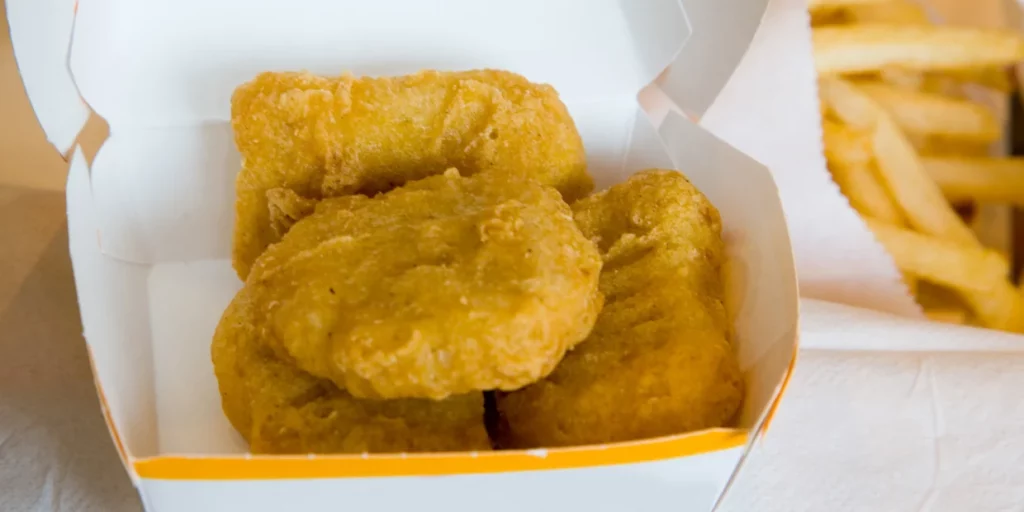
While the appeal of enjoying chilled chicken nuggets might be tempting, it’s crucial to understand the potential health risks linked to this practice. Here’s a closer look at the associated issues:
Bacterial Presence: Chicken nuggets usually undergo high-temperature cooking to eliminate harmful bacteria. However, when eaten cold, there’s a chance that some bacteria could survive, posing a potential risk of foodborne illnesses.
Extended Exposure: Allowing chicken nuggets to remain at room temperature for extended periods can create an environment conducive to bacterial growth. Opting to consume nuggets that have been left out for a substantial duration increases the likelihood of bacterial contamination.
Texture and Taste: Apart from health considerations, the texture and flavor of cold chicken nuggets might not be as satisfying as when they’re freshly prepared. Opting for reheating could potentially enhance the overall eating experience.
Preventive Measures: To minimize potential health hazards when enjoying cold chicken nuggets:
- Verify that the nuggets were thoroughly cooked during their initial preparation.
- Swiftly store leftover nuggets in the refrigerator and consume them within a safe timeframe.
- If reheating isn’t feasible, aim to consume the nuggets shortly after their preparation or refrigeration.
- Prevent leaving chicken nuggets exposed to room temperature for prolonged periods.
What Does Cold Chicken Taste Like?
Cold chicken generally has a milder flavor compared to when it’s hot. The flavors might be less intense, and the texture could be firmer due to the lower temperature. The taste can vary based on the seasonings and cooking method used, but it’s still recognizable as chicken.
Alternative ways to Eat Cold nuggets
If you’re averse to reheating chicken leftovers, there’s no need to fret—there are numerous ways to relish them cold. Here are a few options for you to explore:
Snacks
Firstly, when you’re hit with mid-morning or afternoon hunger, opt for a straightforward approach: indulge in cold chicken as a snack. Treat it like finger food, arranging bite-sized pieces on a plate. It’s a protein-packed choice capable of keeping you satisfied until your next meal. For an extra touch, you can pair it with a dip, enhancing the overall flavor.
Salad
In addition, cold chicken serves as an excellent ingredient in salads. Elevate your salad game by incorporating this chilled protein. Construct a well-balanced salad featuring an array of leafy greens and vegetables. Introduce the cold chicken along with your preferred dressing. To elevate the taste profile, consider sprinkling grated cheese on top.
Sandwich
When delving into lunchtime classics, sandwiches take center stage. Creating sandwiches with cold chicken is a smart way to repurpose leftover chicken without generating waste. Thinly slice the chicken, blend it with mayo and a hint of mustard, and layer it between buttered slices of bread. You can even integrate cold chicken into a cheese toastie for increased protein content and substance.
Nachos
For a distinctive twist, contemplate using cold chicken as a topping for nachos. Shred the meat and disperse it over your nachos, accompanied by your desired sauces and salsas. As you melt the cheese, you have the option to slightly warm the chicken, enhancing the overall gratification of the dish.
Wraps
Roll cold chicken and your choice of veggies or spreads in a tortilla or flatbread to make a flavorful wrap.
Pasta or Grain Bowls
Incorporate cold chicken into cold pasta salads or grain bowls for a balanced and filling meal.
Leftover Meals
Repurpose cold chicken into various leftover dishes, such as cold chicken fried rice, cold chicken noodle salad, or cold chicken quesadillas.
Picnic or Packed Lunch
Pack cold chicken alongside other snacks or sides for a picnic or on-the-go meal.
FAQ
Can I eat cold McDonald’s chicken nuggets?
Yes, you can eat McDonald’s chicken nuggets cold the next day. While they may not retain the same level of crispy texture, they are still edible and safe to consume.
What to do with cold McNuggets?
To restore some crispiness when reheating cold McNuggets, you can try microwaving them. Place the McNuggets on a microwave-safe plate on top of a paper towel to absorb moisture. Microwave on high for 60 seconds, checking and adjusting the cooking time as needed. However, this method might result in uneven heating and potentially soggy texture, so it’s not ideal.
Can I reheat frozen chicken nuggets?
Yes, you can reheat frozen chicken nuggets without thawing them. Arrange the nuggets in a single layer and set the oven temperature to 400°F / 200°C. Cook for 10 to 12 minutes until they’re heated through.
Can kids eat cold chicken nuggets?
Yes, While cold chicken nuggets might not offer the same taste and texture as when they’re freshly cooked if your child enjoys them that way, it’s safe for them to eat cold leftover nuggets.
Is it OK to cook frozen chicken nuggets?
Yes, you do not need to thaw frozen chicken nuggets before cooking them. Cooking instructions are typically designed for using frozen nuggets directly from the package.
Can you save cooked frozen chicken nuggets?
Yes, you can save cooked frozen chicken nuggets. Cooked chicken will taste best if kept frozen for up to 4 months. For cooked poultry casseroles or pieces covered with broth or gravy, you can store them for up to 6 months. Chicken nuggets or patties can be stored for 1 to 3 months in the freezer.
Do you need to defrost nuggets before frying them?
No, you do not need to defrost chicken nuggets before frying them. Frying frozen nuggets without defrosting can actually help maintain their crispiness. Just make sure the oil is hot enough before adding the frozen nuggets for even cooking.
Conclusion
To wrap up, when deciding whether it’s okay to consume cold chicken nuggets, convenience and health should both be carefully considered. While eating cold chicken nuggets is acceptable, it’s important to be aware of any potential hazards brought on by bacterial survival and textural changes.
Besides, you can enjoy cold chicken nuggets while reducing potential health risks by following correct cooking, prompt chilling, and watchful eating procedures.











